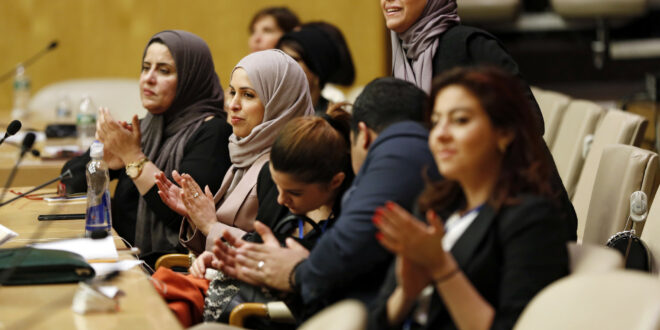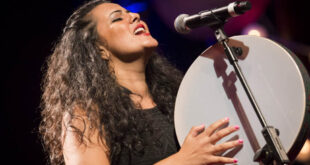Scroll down for Arabic abstract.
Media and communication systems play a significant role in shaping international and geopolitical relations. The current study examines the different types of participation by Arab women in the media industry and cultural diplomacy, which serve as a tool for international public relations. Employing critical discourse analysis, this research scrutinizes digital narratives featuring Arab women from the United Nations Women’s Organization and the High Commissioner for Refugees. This qualitative exploration uncovers the underlying meanings and semantics in these accounts. The results reveal the importance of storytelling as a means of documenting women's stories, giving space for expression to Arab women, and reshaping intergenerational cultural identity. Findings indicate a predominance of positive portrayals, as opposed to negative depictions. The most prominent positive representation were women as peacemakers, as well as integrating and empowering refugee women. The most prominent negative representation involved the suffering of those seeking asylum, discrimination of human rights, and rejection of refugees. The study revealed that the national image varied throughout the discourse of the sample, with the most prevalent images being accepting others, supportive of refugee women, safety, state of the future.
مشاركة المرأة العربية في الصناعة الإعلامية والدبلوماسية الثقافية كأداة للعلاقات العامة الدولية والجيوسياسية
تُعد وسائل الاتصال جهات فاعلة في العلاقات الدولية والجيوسياسية، وقد استهدفت الدراسة الحالية رصد أساليب مشاركة المرأة العربية في الصناعة الإعلامية والدبلوماسية الثقافية كأداة للعلاقات العامة الدولية خصوصًآ في مناطق الصراع الجيوسياسي؛ من خلال تحليل خطاب السرد القصصي الرقمي للمرأة العربية لعينة من المنظمات الدولية. تنتمي الدراسة منهجياً إلى الدراسات الوصفية التحليلية، التي وظفت التحليل النقدي للخطاب بالاعتماد على دليل لتحليل معاني ودلالات خطاب القصص الرقمية للمرأة العربية على الحسابات الرسمية لمنظمة الأمم المتحدة للمرأة والمفوضية السامية لشئون اللاجئين. كشفت النتائج أهمية السرد القصصي في توثيق قصص النساء وإعطاء مساحات للتعبير للمرأة العربية، وإعادة تشكيل الهوية الثقافية بين الأجيال، تبنت غالبية البنى الفكرية لخطاب عينة الدراسة الأطروحات المركزية الإيجابية مقارنةً بالأطروحات السلبية؛ وتمثلت أبرز الأطروحات الإيجابية في "المرأة صانعة سلام"، و"دمج وتمكين الللاجئات"، وأبرز الأطروحات السلبية في "معاناة الانتقال إلى مكان اللجوء"، و"التمييز في الحقوق الإنسانية"، و"رفض اللاجئين". وتباينت صورة الدولة في خطاب عينة الدراسة، وتصدرتها صورة دولة "قبول الآخر"، ثم "داعمة لللاجئات"، و "آمنة"، و "دولة المستقبل".ال
 Arab Media & Society The Arab Media Hub
Arab Media & Society The Arab Media Hub




